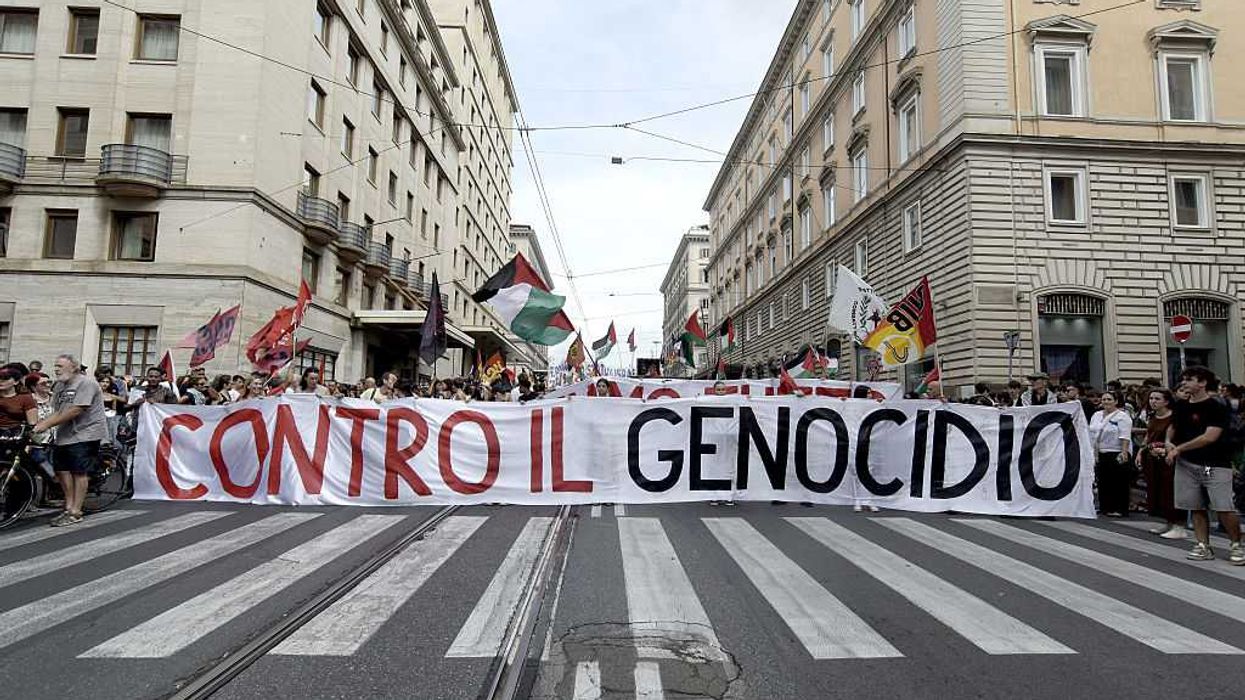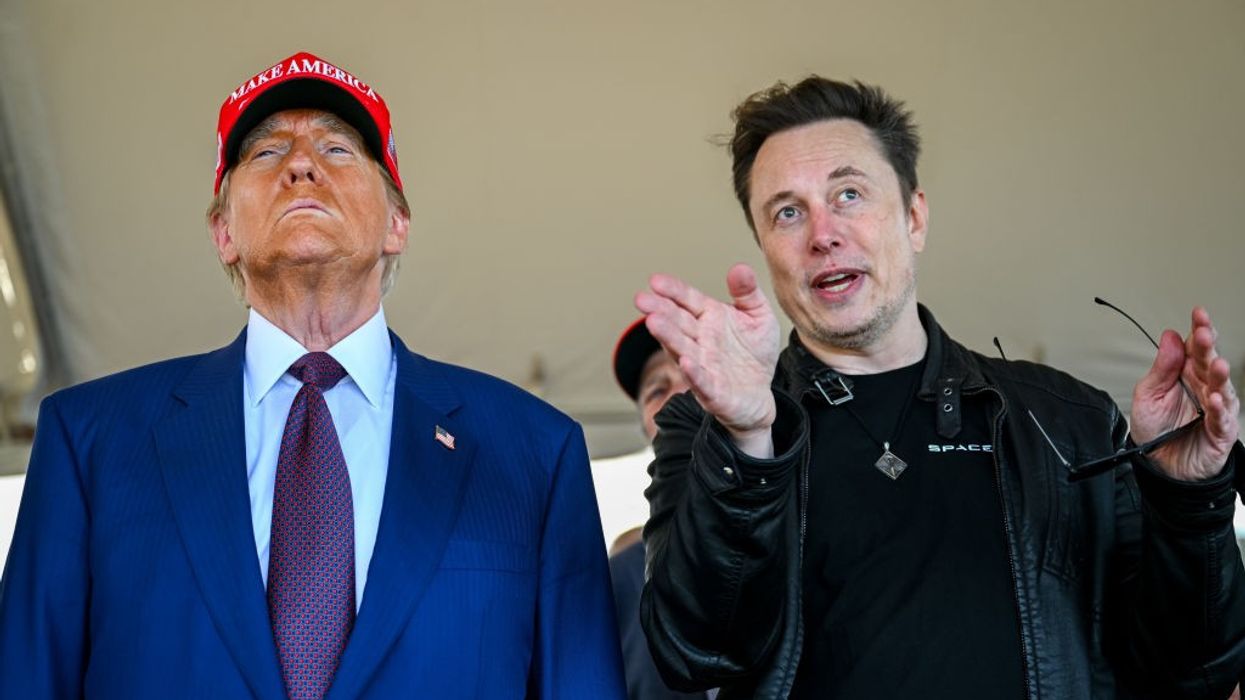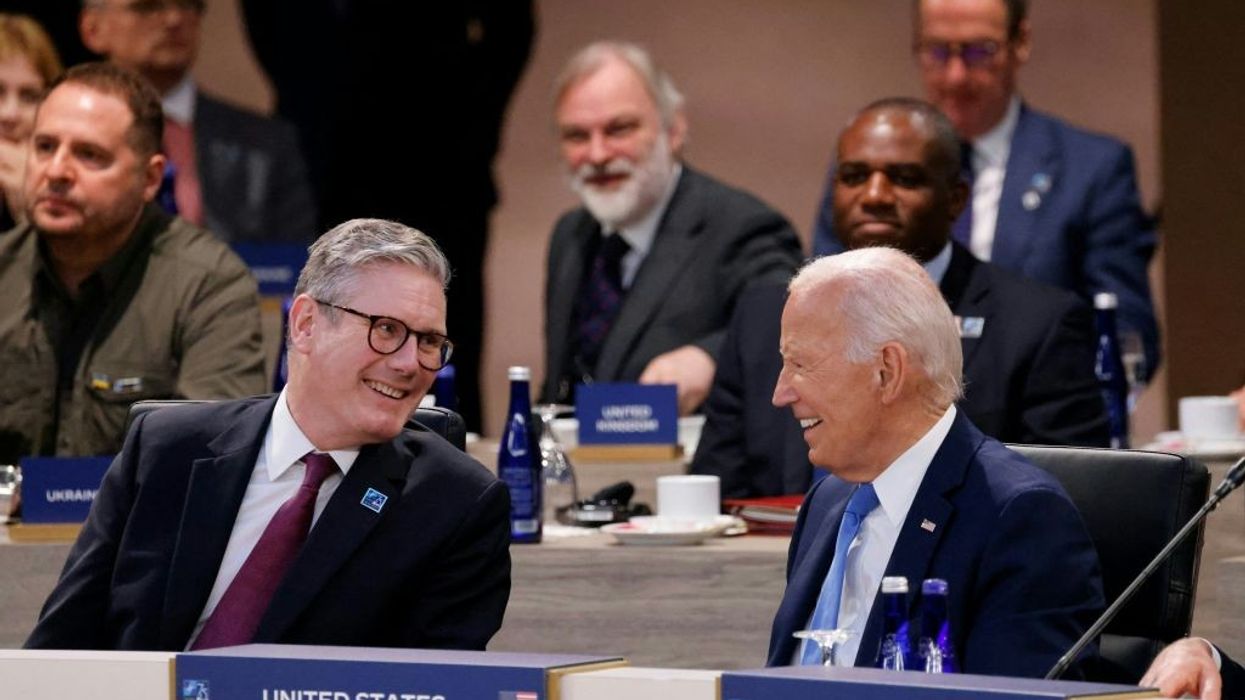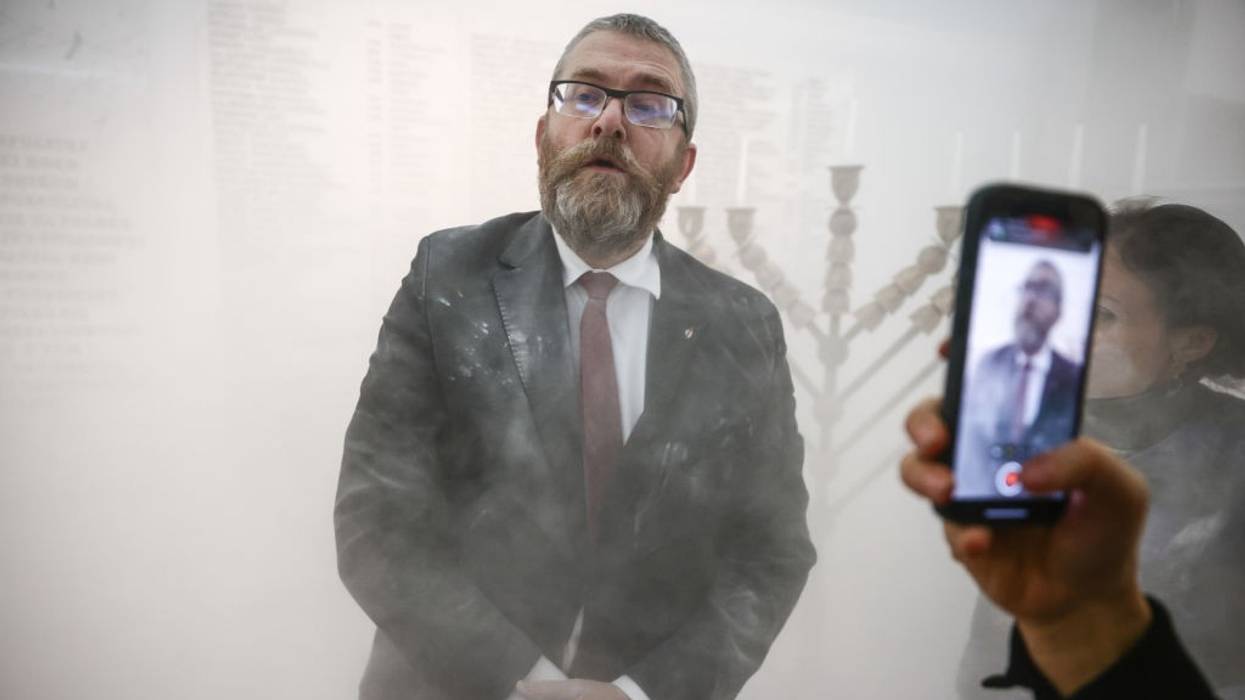Italy's Unions Lead General Strike for Gaza
"Meloni should take a stand with the facts against those who have slaughtered 20,000 children, rather than limiting herself to saying 'I do not agree,'" said one critic of Italy's right-wing prime minister.
Italian labor unions led a massive 24-hour general strike on Monday to protest Israel's ongoing genocide in Gaza, with estimates of hundreds of thousands of demonstrators rallying in dozens of cities across Italy.
Protesters took to squares, streets, transport hubs, ports, university campuses, and other spaces in more than 75 cities and towns, rallying under the call to "Block Everything." Places including schools, train stations, and retail stores were shut for the day.
"The strike is called in response to the ongoing genocide in the Gaza Strip, the blockade of humanitarian aid by the Israeli army, and the threats directed against the... Global Sumud Flotilla, which has on board Italian workers and trade unionists committed to bringing food and basic necessities to the Palestinian population," explained Unione Sindacale di Base (USB), a grassroots union confederation known for its militant stance on labor and political issues.
In Rome, tens of thousands of Palestine defenders rallied at the Termini rail station, Italy's largest, with many of the demonstrators occupying the building.
While protest activities snarled traffic in some parts of the Italian capital, many Roman motorists showed solidarity with the demonstrators by honking their horns and raising their fists into the air.
Watch: Pro-Gaza protesters who blocked a highway near Rome were met with visible solidarity from drivers. Regional news coverage of the paralyzed Central Station showed only people expressing support for the protest.Source: Paolo Mossetti on X (@paolomossetti)
[image or embed]
— Drop Site (@dropsitenews.com) September 22, 2025 at 11:35 AM
Milan saw an estimated 50,000 people turn out to locations including the central rail station, where some protesters damaged property and clashed with police, who said 10 people were arrested and 60 officers were injured.
“If we don’t block what Israel is doing, if we don’t block trade, the distribution of weapons and everything else with Israel, we will not ever achieve anything,” protester Walter Montagnoli, who is the Base Unitary Confederation's (CUB) national secretary, told The Associated Press at a march in Milan.
In Bologna—home to the world's oldest continuously operating university—students occupied lecture halls and thousands of demonstrators took to the streets, including the Tangenziale, the ring highway around the city, where police attacked them with water cannons and tear gas.
Dockworkers and other demonstrators marched and blocked ports in cities including Genoa, Trieste, and Livorno.
Thousands of protesters also blocked the main train station in Naples.
Source: Potere al Popolo via X (@potere_alpopolo)
[image or embed]
— Drop Site (@dropsitenews.com) September 22, 2025 at 11:06 AM
In the Adriatic seaside resort of Termoli, hundreds of student-led Palestine defenders rallied in St. Anthony's Square and, with Mayor Nicola Balice's permission, draped a Palestinian flag from the façade of City Hall.
"Faced with such an important subject, the genocide in Palestine, we students... said this would be a nonpartisan demonstration because in the face of what is happening in the Gaza Strip—hospitals bombed, children killed every day—there can be no political ideology," said one Termoli protester. "We must all be united.”
Some participants in Monday's general strike pointed the finger at their own government.
"In the face of what is happening in Gaza you have to decide where you are," Italian General Confederation of Labor leader Maurizio Landini told La Stampa. "If you don’t tell the Israeli government that you have to stop and don't send them more weapons, but instead you keep sending them... you actually become complicit in what’s happening.”
While European nations including Ireland, Norway, Spain, Slovenia, the United Kingdom, Portugal, France, Luxembourg, and Denmark have formally recognized Palestine or announced their intent to do so since October 2023, Italy has given no indication that it will follow suit. More than 150 of 193 United Nations member states have recognized Palestine.
Although increasingly critical of Israel's 718-day genocidal assault—which has left at least 241,000 Palestinians dead, wounded, or missing in Gaza—right-wing Italian Prime Minister Giorgia Meloni has been accused of complicity in genocide for actions including presiding over arms sales to the government of Israeli Prime Minister Benjamin Netanyahu, who is wanted by the International Criminal Court for alleged war crimes and crimes against humanity. Meloni has rejected the ICC warrants and said Netanyahu would not be arrested if he enters Italy.
"Meloni should listen to the voice of those who are peacefully protesting and asking her to act, rather than curling up to Washington to protect her friend, the war criminal Netanyahu," Giuseppe Conte, who leads the independent progressive Five Star Movement, said Monday on social media. "Meloni should take a stand with the facts against those who have slaughtered 20,000 children, rather than limiting herself to saying, 'I do not agree.' And she should stop running away from the debate in Parliament."



